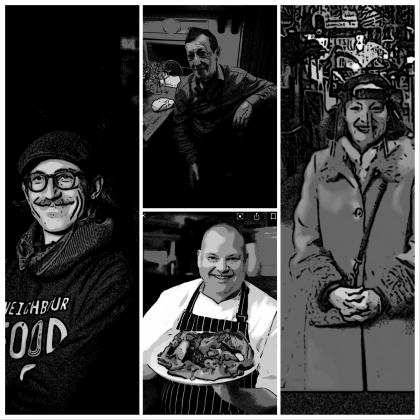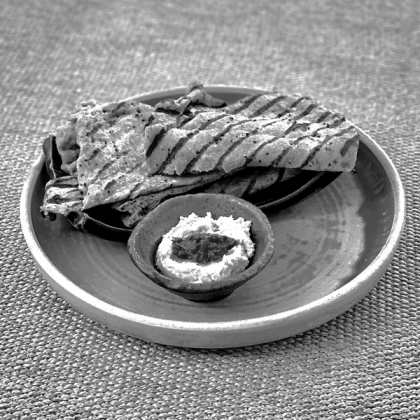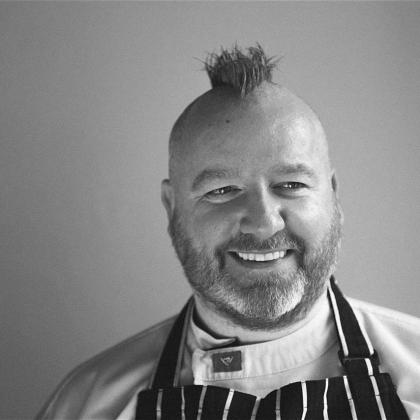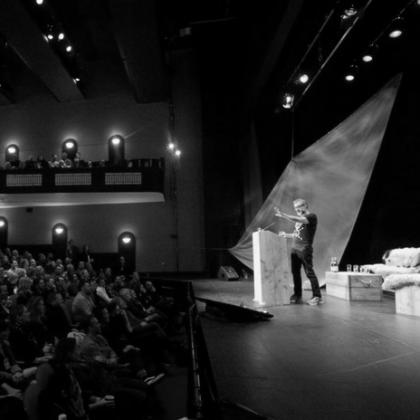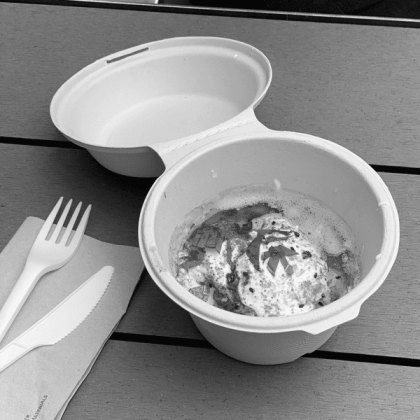“Eating is more important than sex – we do it at least three times a day at all ages and yet it merits little planning and insufficient time both in the preparation and partaking”.
Gerry Galvin isn't just one of Ireland's best know chefs. He is also a poet – his debut volume, “No Recipe”, was lunched in Galway recently by Michael D. Higgins – and being a serious writer may explain Mr Galvin's ability to come up with unforgettable lines like: “Eating is more important than sex”.
We are too polite in Healthplus to debate the issue as to whether Gerry Galvin is correct about the relative importance of eating and sex. But we can surely agree with the poet when he says that our daily eating “merits little planning and insufficient time both in the preparation and partaking”.
How many of us make breakfast, lunch and dinner into whizz-through affairs, culinary sprints with no planning beforehand, and precious little time for partaking, before we rush onto whatever else we have to do.
The problem with rushing through our meals is that we turn what should be a marvelous endeavour of creative fulfillment, into nothing more than a chore. For so many people, preparing food is dull because it is repetitive: Monday is leftovers, Tuesday is chicken; Wednesday is mince; Thursday is pizza; Friday is fish fingers, and on and endlessly on.
Now, time for breakfast and lunch may be something we have to postpone for the weekends. But time for dinner, even in a busy household is, I would suggest, a vital ambition for everyone who wants to not just eat well, but to be well.
Man is the cooking animal, so why should we denigrate the very thing that makes us different from every other species? We need to cook, not just to have something to eat, but just as importantly to anchor ourselves in real time. So much of our digital world today takes place at unnatural speeds that is has made the time spent cooking into REAL time: you can keep watching that kettle, but it won't boil until it is good and ready. “La cuisine prend du temps”, they say in the French: cooking takes time. But it needs time, time in the cooking to balance our heads, and time in the digesting to balance our health.
So, how might we do better at planning dinner, and take our time over enjoying it? Here are a few tips:
1. Use a recipe book. Cookery books are great for steering you away from what you might have cooked one more time, into cooking something new. Even the slightest variation proposed by a cookery book can make the typical suddenly taste topical. My favourite example of this happening in our kitchen is a meatball recipe from a Bill Granger book that I cooked one night, just because Granger grated the onion into the mince rather than chopping and frying it. “Why haven't you made meatballs like this before!”, my kids hollered with delight. All that was different was the little detail, but to them it tasted brand-new.
2. Switch on some music. Cooking should ring the change between the working day and the own-time evening. Music makes this change in an instant, so get something to plug your iPod into and put it in the kitchen.
3. Plan the shopping. The recipe book may steer you to something different, but planning the course of a meal is a key element of making it special, and it needn't involve any work. Having some salad to start, or some cheese after, or buying a decent pudding such as an artisan ice cream, is all easy-peasy. At a friend's house recently, the host simply scooped some Cramer's Grove honeycomb and chocolate chip ice creams into a bowl and handed them to us: best dessert I have eaten in ages.
4. Light a tea light. Even better, light two, or even four. Atmosphere increases exponentially by candlelight.
5. Drink wine. It's good for the digestion and the arteries, but just as importantly, it drastically slows down how quickly we eat: you can't gulp wine. Slow is good.

